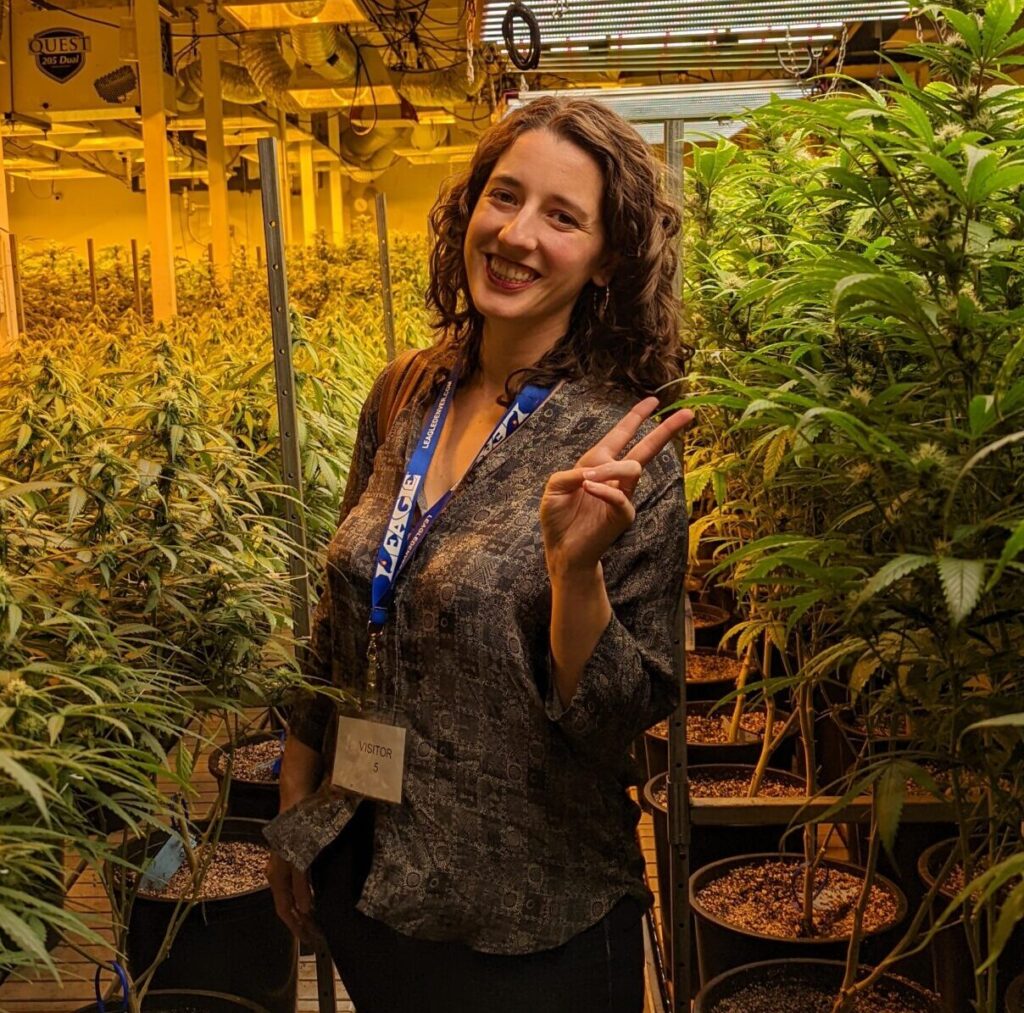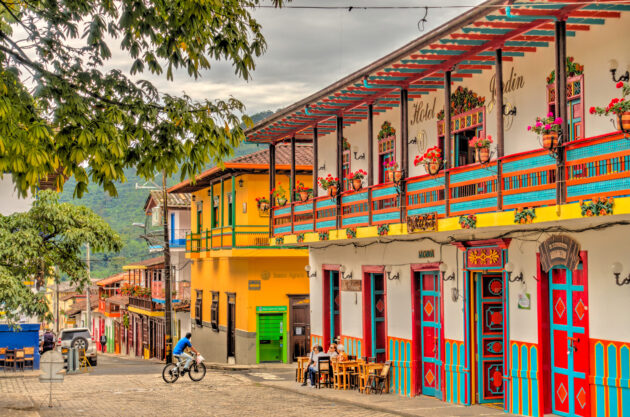
Features
Business
International
Opinion
Q&A with GCNC: Highlighting community within the global cannabis network
Jill Reddish, CMO of GPS Global and co-founder of GCNC, covers market connections and resources for expanding the global cannabis ecosystem.
March 1, 2023 By Jill Reddish
 Photo: Jill Reddish
Photo: Jill Reddish GO: How are GPS Global and the Global Cannabis Network Collective related?
JR: Chris Day and I founded GCNC in 2020, and we knew the folks who had started Gateway Proven Strategies.
Bob Hoban, of Hoban Law Group (now part of Clark Hill PLC), is one of the leading and earliest cannabis law firms out of Colorado and the United States. So in the summer of 2021, we realized it made sense to merge and create this ecosystem of cannabis leaders – especially because not many other consulting firms were doing international work, so it was a good fit with the GCNC.
Now the GCNC continues to operate as an independent, private network for leaders of multinational cannabis, hemp, and ancillary companies, but is under the GPS umbrella with the additional backing of GPS’s network of international consultants.
GO: What market needs are you meeting through GCNC?
JR: We saw a need for more global connectivity and space for relationship building. So much of cannabis is “who you know,” and people want to do business with people that they know and can speak for.
Chris and I had both been at MJBiz and we facilitated a lot of international partnerships there. We realized not many people were bringing international folks together, so we saw a need, and through our interest and skillset, we made it happen.
We’re here to make person-to-person connections and help support people and their businesses.
GO: What is your background prior to GCNC?
JR: I have a master’s of communications focused on communities and networks – so understanding how people connect, create community, and how networks work. Chris talked me into joining the marketing team at MJBiz, and I was doing content marketing for them. But by the end of it, I was not doing the kind of community building that I like.
Chris also has a background in the ad agency world, so he can float really well between the consulting model for GPS, and understanding and uncovering business needs that our clients and our members have.
GO: How are you connecting thought leaders in the global collective?
JR: It’s very multifaceted. We sit down for an onboarding call with each GCNC member to understand their business needs, and by the end of that conversation, there’s usually three-to-five introductions that we’ve written down regardless of whether they’re straight up potential clients, or strategic partnerships, or other knowledge leaders.
With the GCNC, we’re here to build out and facilitate deal flow, but there’s a lot of information sharing that has to happen.
For example, if we’re talking to a company that’s wanting to expand into an emerging market, like Costa Rica, we make introductions so they can have preliminary conversations about understanding the context, the culture – those kinds of intangible things. This sets people up for success more than going in without context.
GO: Which international markets are you operating in?
JR: Well, Germany’s announcement of their proposed regulatory framework really created some ripples. And it’s definitely going to be a long legislative pathway since they have to deal with the E.U. and there’s a lot of ramifications there.
Knowing that it’s going to take quite a while to really set up a feasible import market, if that’s even the route that they’re going to go, had major ripple effects for our members in South America, especially in Colombia.
So how can we help our clients understand how to pivot? It’s a lot of diversification, adaptability, and finding new pathways.
This year we’re excited to focus on emerging opportunities in India, and in South Africa. South Africa is a big question as to whether there is there going to be something viable happening there. And Thailand, of course, lots of people are talking about Thailand right now.
Our GPS head of international consulting Deepak Anand is Canadian, and we were just at the Lift Vancouver conference.
People were definitely excited to come together, but it’s clear we have to focus on the solutions. I think talking “big picture” macroeconomic view, we’re unfortunately going to see some die off right now of companies.
They can have so many things going for them and yet due to the market forces, sometimes the numbers just don’t make sense, and that’s incredibly frustrating.
A medium sized company can have everything going for them – great brand, great customer loyalty, good price point, great product – and just still not be able to make any kind of profit because of the taxation in Canada.
GO: Is ESG on the radar of the companies you’re working with?
JR: It’s definitely on the radar. We work with a lot of people in the U.S. who really care about that and understand that it’s important.
But investment wise, a lot of North American companies are not quite there yet because sometimes really good ESG tactics can have a really high capital investment. But internationally, people think about it differently.
In India for instance, they have a law that at a certain size corporation, a certain percentage of their profit has to go back into social impact work. For example, GPS is working with a client in India that has an amazing public-private partnership in place where the government is supporting infrastructure updates, like better roads and water access to a remote region that’s known for traditional cannabis.
But in the short term, that’s where you have to start to ask different questions and reframe the equation because there is an equation that exists where it is monetarily beneficial – you just have to think a little bit more long term than the next six months.
That’s something that’s really exciting about the work that GPS and GCNC does – especially all of our GCNC members – they really share this goal of wanting to build the cannabis industry for the long term. We’re working with people who really see the long game.
GO: Aside from that, what are you personally most excited about when looking ahead at the global market?
JR: I will spotlight Colombia.

Photo: Adobe Stock
I’m really inspired by the awareness that the leaders of the country seem to have in understanding that Colombia could be a leader in turning around its own story of the drug war.
They’re a country that has suffered so much and have always been one of the leading producers of marijuana. Their people have been victimized in a way that few other countries have been, but right now, they’re realizing they can turn it around and be a leader in cannabis production while completely rethinking drug policy.
And almost everybody that we talked to, who’s starting a business there, understands that they’re creating jobs that are legal and are uplifting communities. They understand they are having an impact not just because of the jobs, but because they’re creating a health and wellness product and are taking something that has been incredibly negative for decades and turning it around into something that’s incredibly positive. That’s super inspiring.
GO: It seems we’re on the threshold of paradigm shift surrounding global policies, and the incorporation of ESG not only into cannabis business models, but also by using cannabis and hemp crops for greater global sustainability. In what ways do you think we’ll move that needle as a global community?
JR: One of the things that I find so fascinating about cannabis but that I think also makes it challenging for more traditionally minded businesspeople to wrap their heads around is the cannabis crop in and of itself is a whole paradigm shift. It’s not just one plant and we get one or two commodities from, it’s not like growing cotton. It’s something that spans so many sectors – textiles, health and wellness, pharmaceutical grade products, and the potential industrial commodities.
I think that’s challenging for some because you just can’t fit cannabis into a box.
We’re so used to widgets and boxes and simple inputs, but we do need a paradigm shift because the world is getting more complex and we’re seeing how interconnected everything is. I think we have to approach things from a much more network-based ecosystem understanding, like a community.
We talk to growers, especially in Colombia, who understand the potential regenerative ecosystem their cannabis operations could be. And so, if you look to the vineyard and wine industry model, for example, where you’re consuming the product of that land, the specific qualities of terroir, and having a whole experience of independent growers. I think that’s very transferable to cannabis.
It’s there on a small scale, but we’re just not there yet globally. But the vision is there. Think of the tourism that champagne generates for the wine region of France.
I’m so excited to get to the point where there is free trade of cannabis, and you can go to one shop that specializes in specialty imports and taste the best of Humboldt County and the best of Colombia and the best of regions in India.
Then later you can actually go to that farm in Colombia where it’s grown and have an experience; this will help you feel like closer to the land and inspire you to protect the land.
Sometimes I even think about the Medieval guilds model. I love a good German beer where the recipe has been the same since 1664 – where it’s protected and there’s quality standards.
We have the same kind of quality standards with cannabis right now, but it’s not so much with the intent of protecting what makes the cannabis grown here on this land – this terroir – unique and special. But I think we can get there.
Eventually we do realize we value our diversity and the things that make us unique. And those are worth protecting – and sharing.
Print this page